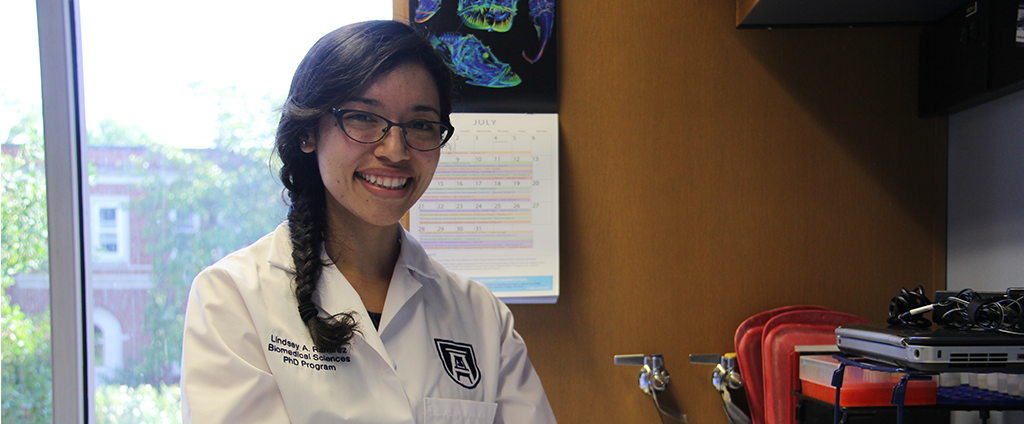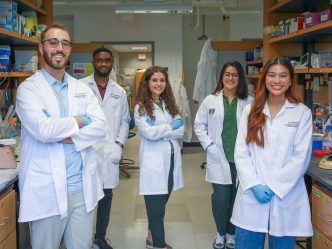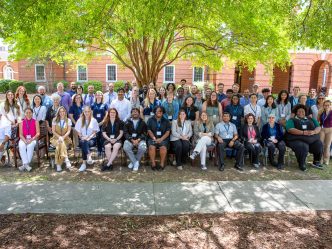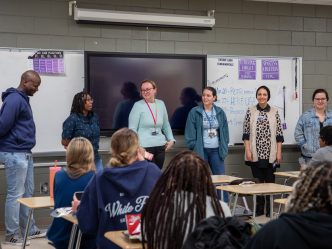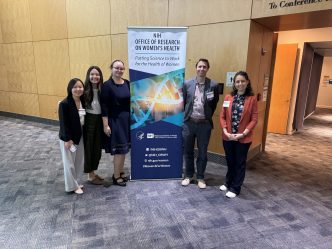Lindsey Ramirez is a third year PhD Candidate in Dr. Jennifer Sullivan’s lab in the Department of Physiology at Augusta University. When asked, “Why a Biomed PhD?”, Lindsey responded, “We are only beginning to scratch the surface of how devastating diseases affect organ systems and the person as a whole. Since these diseases are rarely caused by just one factor; a diverse, curious, and creative approach is needed to uncover underlying causes and treatments. I joined a Biomed PhD program because I am passionate about increasing diversity in science, conducting rigorous and well-controlled studies, and spreading understanding of science regardless of culture or educational background. Enriched collaborations like this will excel our progress in science and help uncover the mysteries of these diseases.” Being in her third year, Lindsey started thinking about what she wanted to do following graduation. She decided she would like to continue with research and become a primary investigator with her own lab but she knew one critical part of having your own lab is acquiring research grants. In order to gain experience applying for grants, her mentor, Dr. Sullivan, suggested she start with applying to a number of fellowships.
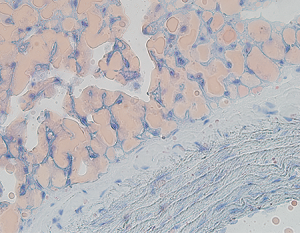
When Lindsey thought about the type of fellowship she would like to apply for, she decided she wanted to apply for grants that have a focus on diversity and inclusion. One reason she felt strongly about applying for this type of fellowship is because she would like to help diversify the field of biomedical sciences. She said, “As a Latina woman in STEM it is sometimes hard not seeing anyone that looks like me in high up positions. I think that contributes to the feelings of not belonging and not being good enough for this career. It is also hard because no one in my family has a PhD and I know there are other first generation students out there facing the same thing. I want to do my part in helping to bring opportunities to underrepresented minorities and help all of us excel in STEM.” With that in mind, she applied for a total of three fellowships, one with the National Institutes of Health (NIH), the American Heart Association (AHA) and the American Physiological Society (APS). To her surprise and relief, she was awarded a Porter Physiology Development Fellowship with the APS. The goal of this fellowship, according to the APS website, “is to encourage diversity among students pursuing full-time studies towards a PhD in the physiological sciences and to encourage their participation in the APS” and the winners are awarded a $28,300 stipend for one year. When asked how she felt about receiving the fellowship, Lindsey said, “Amazing…getting something like this is a good feeling to know I’m on the right path and I can do this.”
In order to be awarded a fellowship, a student must explain their research and the reason why it’s important for them to receive the fellowship. In Lindsey’s research, she is trying to see if female rodents are more prone to hypertension due to bad immune cells in their fat tissue. In the research that has been done in Dr. Sullivan’s lab, they have shown that females are usually protected from developing cardiovascular disorders relative to males because they have more good immune cells. However, they are hypothesizing that chronic ingestion of a diet high in saturated fat causes a switch in the fat tissue leading to the accumulation of bad immune cells and increased sensitivity to developing cardiovascular disease. This is important since cardiovascular disease is the leading cause of death in both men and women in the United States, and the “typical” Western diet is high in saturated fat. For these reasons, Lindsey is hoping to learn more about how a high-fat diet can promote disease in both males and females.
 Augusta University
Augusta University
